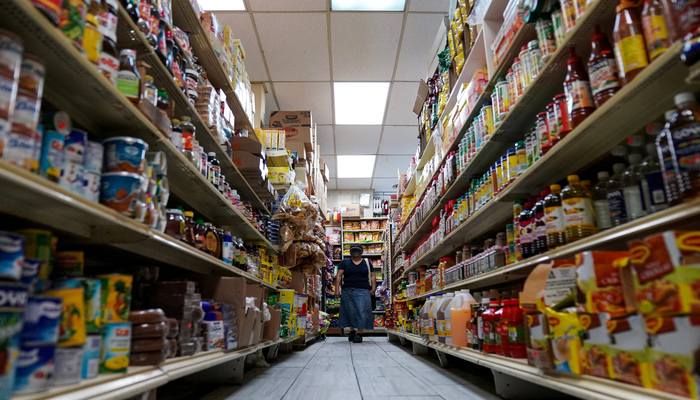
A woman shops for groceries at El Progreso Market in the Mount Pleasant neighborhood of Washington, DC, US, August 19, 2022. — Reuters
The budget for the fiscal year 2025-26 is said to be attracting mixed reactions from both analysts and the general public, the reason being the reduction in regulatory duties by up to 5% to make numerous imported items more affordable, while striking some essentials and food products with additional duties, making them more expensive.
Which household items will get cheaper after budget 2025-26?
As outlined in the budget for FY26, over 600 food and beverage items are expected to see price reductions, including:
- Cheese
- Butter
- Honey
- Various beverages
- Imported milk cream
- Flavoured milk
- Condensed milk
- Ketchup
- Mayonnaise
- Toffees
- Candies
- Biscuits
- Jellies
- Ice cream
- Snacks like papadum and chips
- Imported chocolates
Makeup and cosmetic products to get cheaper after budget 2025-26
Similarly, the budget also curtailed the financial burden on women by reducing prices of most of the makeup and cosmetic products. These include:
- Beautification gear
- Hair styling items
- Blush
- Mascara
- Lotions
- Perfumes
Which everyday products will get expensive after budget 2025-26?
On the other hand, the budget also places higher taxes on several items, which will lead to increased prices for consumers on the following items:
- Vehicles (18% tax)
- Petroleum products (carbon levy of Rs2.5per litre)
- Juices (5% tax)
- Carbonated water (5% tax)
- Mineral water (5% tax)
- Pet food (including for dogs and cats)
- Coffee (5% tax)
- Chocolates (5% tax)
- Cereal bars (5% tax)
An 18% tax on imported solar panels is expected to raise costs for renewable energy products, while an 18% tax on hybrid vehicles running on petrol and diesel will further inflate vehicle prices.
Additionally, a 2% tax on online sales has been imposed on both e-commerce consumers and sellers.
These tax reforms translate the government's strategy to expand the tax net while reducing the financial burden on households through price cuts on essential goods.
















